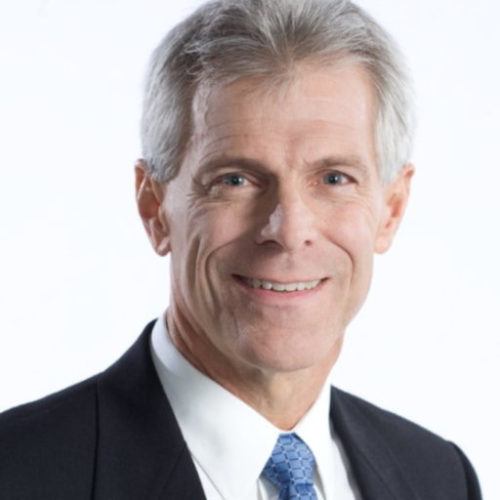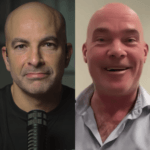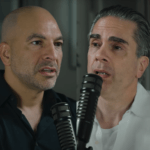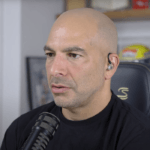Don Layman is a Professor of Food Science and Human Nutrition at the University of Illinois Urbana-Champaign. He has spent the past 40 years investigating the role of dietary protein in muscle protein synthesis. In this episode, Don describes how his decades of research have shaped his thinking around protein, muscle, anabolic factors, metabolism, and more. He explains the recommended dietary allowance (RDA) for protein: what it is, how it came about, and how it should serve only as a guide for the minimum protein necessary for survival rather than as an optimal level of protein intake. He provides an overview of the essential amino acids, explains the nuances of animal versus plant protein, and provides insights for determining protein quality, absorption rates, and how to best track your intake. He discusses the ideal timing of protein intake in relation to resistance exercise, how protein should be distributed among meals, and how limitations in protein utilization per sitting can impact those practicing time-restricted eating. Additionally, Don shares results from his clinical trials, including how a high-protein diet fared in terms of fat loss, and explains the differences in protein utilization between adolescents and adults and how the problem of reduced efficiency of protein utilization in older adults can be overcome.
Subscribe on: APPLE PODCASTS | RSS | GOOGLE | OVERCAST | STITCHER
We discuss:
- Don’s background: from growing up on a farm to studying nutritional biochemistry [2:30];
- Don’s philosophy on nutrition, muscle, and metabolism [6:30];
- The controversial relationship between saturated fat and atherosclerosis [18:15];
- The basics of protein and amino acids [25:45];
- Origin and limitations of the current recommended dietary allowance (RDA) for protein intake [32:15];
- Protein sources: determining quality, absorption rates, and how to track intake [41:15];
- Leucine, lysine, and methionine: three important essential amino acids [48:00];
- The vital role of ruminant animals in the production of quality protein [53:15];
- The differing needs and impacts of dietary protein for a 16-year old compared to a 65-year old [59:30];
- Consequences of protein deficiency in childhood [1:06:30];
- Muscle protein synthesis: ideal timing, small meals vs. big meals, and more [1:12:45];
- Protein needs of children [1:19:45];
- How important is timing protein intake around training? [1:24:15];
- The role of leucine in fatty acid oxidation by muscle [1:28:15];
- High protein diets for fat loss: Results from Don’s clinical trials [1:31:30];
- Influence of industry funding on nutrition studies [1:43:45];
- Don’s thoughts on plant-based and synthetic “meats” [1:48:45];
- Problems with epidemiological studies of dietary protein [1:56:30];
- More.
Don’s background: from growing up on a farm to studying nutritional biochemistry [2:30]
- Peter has heard a lot about Don over the past couple of years from their mutual friend Layne Norton, who suggested they get together and go deeper down this nutritional pathway
- Nutrition is Peter’s least favorite subject only because he’s so tired of the religious aspect of nutrition
- He enjoys talking about nutrition through the lens of biochemistry
- Don was interested in biochemistry first
- Studying organic chemistry just seemed so boring and esoteric
- With nutrition, he could actually apply biochemistry to things people were interested in
What was it like growing up on a farm in Illinois?
- His dad lived to 97 and his mom to 102
- It was great, he was born in the ‘50s
- This was a time when agriculture was very poor in the US
- He learned about animal growth and reproduction
- He leaned about growing corn and soybeans
- He was very interested in food, he always had an interest in science, and this evolved to be a natural marriage
- He grew up in a small town; his school had about 400 people in it
In college Don first studied biochemistry and organic chemistry
- This was the serendipity of how he got into nutrition; he didn’t know anything about it
- He first went to Illinois State University to study chemistry
- He realized quickly he had no aptitude for inorganic chemistry, but he understood biochemistry pretty well
- This was during the Vietnam War and he was scheduled to go into the military
- He was totally unemployable
- So when the university offered him a graduate assistantship, he took it and got a master’s in biochemistry
- His mentor at the time said, “You really have a knack for this nutrition part of it. Why don’t you do a PhD?”
- He ended up at University of Minnesota doing a Ph.D. in nutritional biochemistry and fell in love with all of it
- There was no grand plan, but it fit his background of agriculture, foods, sports nutrition
- He fell into a group that was doing muscle metabolism and it just all fell together for him
Was Ancel Keys at the University of Minnesota at that time?
- No, he had left, but his legacy was there with Henry Blackburn, Ivan Frantz, and some of those individuals
- Don got that background while he was there and it certainly invested a lot of his early thinking of nutrition
- Layne Norton, who you’ve talked with before, has talked about how our thinking of nutrition evolves; “mine certainly has evolved”
Don’s philosophy on nutrition, muscle, and metabolism [6:30]
What was your underlying philosophy of nutrition circa 1975, when you were doing your Ph.D?
- His earliest thinking about nutrition involves his interest in animal growth and sports nutrition
- Very early he developed the philosophy that nutrition was really about two tissues, the brain and skeletal muscle
- If those two tissues were healthy, you were going to live a pretty good life
- Everything else is regulatory‒ the liver, the heart, the kidney, the gut
- Everything else adapts to your environment, but you have to focus on those first two
- Don says that “if you tailor your nutritional requirements around that thinking you end up with a much more sensible approach”
- He coined the concept that his colleague, Dr. Gabrielle Lyon and he always use‒ muscle centric nutrition
- If you keep muscle healthy, you’ve got a good shot at avoiding obesity, avoiding diabetes, avoiding cancer, etc.
“If you keep muscle healthy, you’ve got a good shot at avoiding obesity, avoiding diabetes, avoiding cancer, etc.” —Don Layman
Details about muscle
- Peter notes that muscle is our largest sink for glucose
- 75-80% of our glucose storage capacity exists within skeletal muscle
- Muscle is also an early depot for excess adipose tissue
- Once we start to let little droplets of fat accumulate within muscle cells, it leads to this process of insulin resistance
- This creates a problem in that it makes it harder for muscle to accept carbohydrates
- This leads to hyperglycemia and ultimately diabetes
How Don formulated his thinking about muscle
{end of show notes preview}

Don Layman, Ph.D.
Donald Layman is a Professor Emeritus at the University of Illinois Urbana-Champaign College of Agricultural, Consumer and Environmental Sciences in the department of Food Science & Human Nutrition. Don earned his B.S. in Chemistry and M.S. in Biochemistry at Illinois State University and his Ph.D. in Human Nutrition and Biochemistry at the University of Minnesota, St. Paul. His research focuses on understanding the protein and amino acid requirements and interrelationship between dietary protein and carbohydrates needed for adult health. In particular, his research seeks to understand the impact of diet and exercise on obesity, type 2 diabetes, and metabolic syndrome in adults. His work has helped to define the role of branched chain amino acids (BCAA) in skeletal muscle metabolism. BCAA provide an important energy source for muscle during exercise and also serve as a critical regulator of muscle protein synthesis during recovery. During exercise, oxidation of BCAA increases, resulting in production of the amino acid alanine and a rapid decline in plasma levels of BCAA. Amino acid supplements prevent this decline in plasma amino acids, enhance recovery of muscle protein synthesis and interact with insulin to help stabilize blood glucose. His research continues to define mechanisms for control of muscle protein synthesis and differences in dietary protein needs for men versus women and for adults with sedentary versus active lifestyles. Don currently consults for many food industry companies including Kraft, Nestle, Hershey, the Dairy Council, the Egg Board, and the Beef Board. [University of Illinois Urbana-Champaign]
Twitter: @donlayman






How do we tie this in with studies that suggest a low methionine diet supports longevity?
This was one of the best podcasts you’ve done. I would love a protein master class multi episode with this guy or others like you did on cholesterol. I can tell we are just skimming the surface on a topic whose mastery will yield much benefit
Wow; I just quit watching, completely overwhelmed. My takeaways from the hour or so I watched:
* Do not diet after age 60.
* You can’t gain any muscle mass after age 60.
I got into working out at age 58, and I enjoy it, but all this stuff? It’s missing any practical application (I listened, I really did, but couldn’t try another hour in the hopes of anything practical) and full of fatalism that I’m pretty sure is not the point, but there’s no other takeaway.
They actually mention 60 year old’s respond the same as 20 year olds to hypertrophy as long as the protein levels are higher for the people over 60. So you can definitely build muscle, you just need higher amounts of protein to do so.
Tell me if I am wrong, but didn’t Dr. Layman demolish intermittent fasting ( at least daily IF ) as a healthy practice? We need to eat a large protein breakfast to counter the overnight breakdown of muscle mass and lunch is important too, just not as important as lunch and dinner.
Perhaps IF could be practiced occasionally, but not daily. I don’t see how it could be otherwise.
Learning so much, Dr. Attia! Appreciate the awesome show notes! I was on a vegan diet for 4yrs and my cholesterol (which had never been a problem) was vastly improved. Just added back meat/dairy/eggs a year ago…now my hs-CRP is “high” and cholesterol #s are problematic. I have always been in good health – 5’1″/123lbs; do IF often; exercise 5xweek. I’m at a loss!!! Plant-based diet made my already good cholesterol even better, but was never getting enough protein. Doc wants me on a statin now. I’ve never had an elevated CRP or bad cholesterol #s either until now. 🙁 Began HRT in Feb. of this year. Could Premarin/Progesterone affect my cholesterol? Trying to decide on best action plan.
Now that was an eye opener if there ever was one. Thank you Dr. Attia. I choose to eat a plant based diet while striving to add and maintain muscle mass as a 77 year old. I am successful in this but obsess about protein at least as much as Dr Attia does. Having said all of that, the knowledge of protein availability that I obtained from this podcast has been absolutely eye opening I am sorry to admit and will lead me to change the approach I had been taking. Unfortunately, it is clear to me now that protein supplements will absolutely be required to achieve daily protein goals exceeding 1.6 gms/kg. Fortunately, there is a new supplement on the market where whey protein has been derived from microflora that I pray will hold up to its claims (California Performance Co). Thanks again.
Jim
First of all, kudos to you sir, for maintaining and even gaining muscle mass at 77 years old. Second of all, I hope you find success in your new endeavours. I’m sure you will.
Only thing left to do is not letting the obession-derived cortisol counter your good intentions 😉
All the best, stay healthy!
Pim
Dear Peter, is it true that Hydrolized Whey is more digestable by the skeletal muscle? If so, what would be the digestable amount in grams per kilo in one sitting?
Thank you,
Galo from Spain
A fantastic episode! Up there with the best I’ve heard on the Drive. Great topic and really surprising
Information.
5 stars!!
Hi. I just turned 60 this month. After listening to Peter I have change my focus to what I call the long game. I do triathlons but I also lift three days per week (which I wouldn’t do as just a triathlete). My goal is also superb health at 100, so the centenarian Olympics is my new goal. I have some pictures posted at absat60.com.
Great episode. Regarding meal timing, how do you determine what constitutes a separate meal? For example if I have a high protein shake after a workout, and eat eggs an hour later (or vice versa), is that one meal or two? I have always heard to space protein meals out by 2-3 hours for maximum absorption, but I have never seen science around it.
Protein requirement for the day of weight training makes sense. What about non-weight training days, e.g. days of Z2 training? Should one consume 150g protein every day, or only on days of weight training/anabolic stimulus? Might make sense to give mTOR activation a rest on Z2 days?
You’ve convinced me how important more protein is for me as a 66-year-old who’s already lost muscle mass. Are there risks, though? In your experience, do people who eat the large amount of protein that you recommend start having trouble with gout?
Any info CKD related?
Great episode. Can you clarify whether the protein requirement should be based on your target weight or current weight (assuming your goal is to lose fat). Thanks.
Congratulations to all on this podcast – one of the best ever on The Drive.
On the issue of the relative roles of fatty acids and glucose as potential primary drivers of insulin resistance: how does Peter think that Don Layman’s alternative story squares up with Gerald Shulman’s, in particular the reference to Robert Wolfe’s 1996 experiment as reported in “Glucose and insulin-induced inhibition of fatty acid oxidation: the glucose-fatty-acid cycle reversed”.
They actually mention 60 year old’s respond the same as 20 year olds to hypertrophy as long as the protein levels are higher for the people over 60. So you can definitely build muscle, you just need higher amounts of protein to do so.
This is the best and most informative podcast on health and wellbeing – and I listen to more than a few. I turn 60 in May and have been a lifelong exercise enthusiast. I am keenly interested in extending my health span as long as possible. Keep doing these podcasts!
Best episode yet. I’m a boarded veterinary internist that works exclusively with livestock health and welfare. So much really dangerous misinformation surrounding livestock and animal protein. Thank you for getting some science out.
And ruminants as upcyclers! Their superpower!
This was SUCH a great discussion, even though there are big chunks I have a hard time following because I just struggle with chemistry. I have 2 questions: (1) was there a specific recommended daily intake re leucine? I saw the recommendations re lysine and methionine, but not leucine; and (2) is there any reason to worry about kidney impacts of eating 40+ grams of protein 3 times per day?
Wow, I was really mistaken about protein synthesis. I had read that we synthesize muscle protein while we sleep, not during the day. But Layman and some other experts say that there is actually a dead zone in the middle of the night where we the synthesis of protein reaches a nadir. I had it backwards. I wonder how many other people got this backwards?
I think everyone loves this podcast because meat taste so good and who doesn’t love eggs and bacon for breakfast or breakfast tacos!
Question – What do you think about how to reconcile more protein with the longevity diets of the Blue Zone which seem to be less protein and more whole grains and beans?
Kelley 60 in Austin!